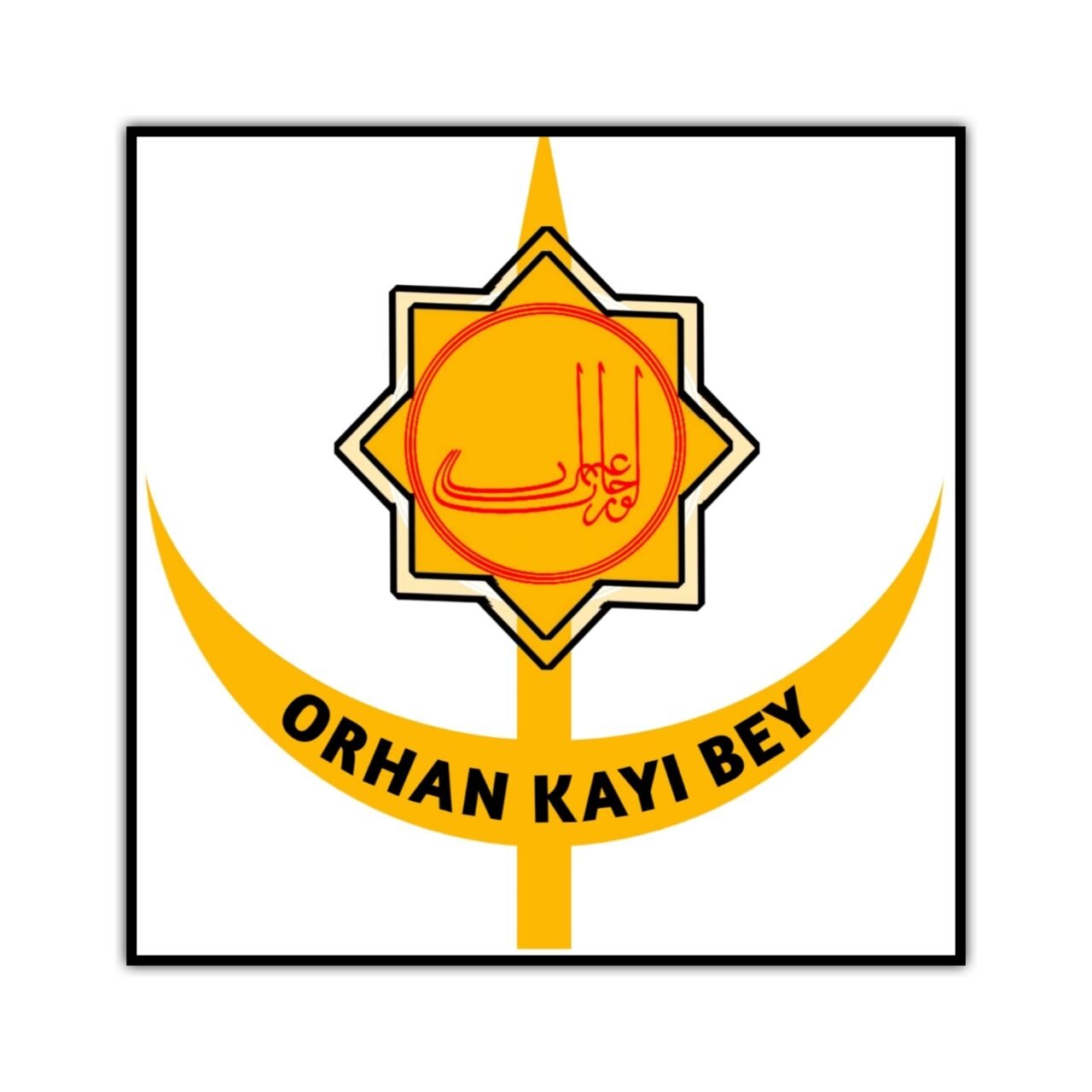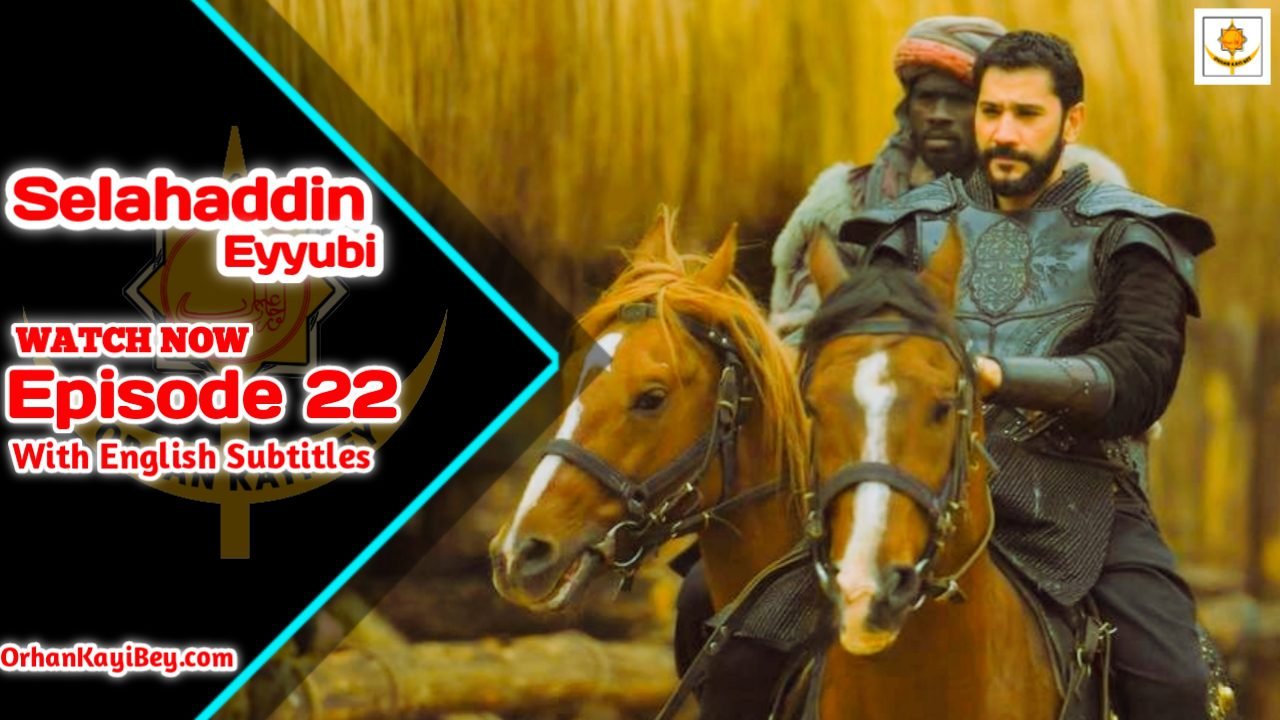Kudus Fatihi Selahaddin Eyyubi Episode 22 With English Subtitles
Sultan Nureddin Faces His Brother’s Ultimate Betrayal. The tension between Sultan Nureddin and his brother Mevdud finally reached a boiling point. After repeated acts of betrayal, Nureddin could no longer hold back his fury. In a dramatic moment that captured the fury and heartbreak of betrayal, he pressed a bowstring against Mevdud’s neck, symbolizing how close he came to ending his brother’s life.
Kudus Fatihi Selahaddin Eyyubi Episode 22 With English Subtitles
This act wasn’t just about rage, it reflected a deep sense of betrayal from someone he once trusted with everything. It was a moment charged with emotion, history, and the weight of leadership. Nureddin stood torn between justice and blood, facing a decision that would affect not only his family but the entire future of his reign.
Selahaddin Conquers Damascus and Executes Justice
While Nureddin dealt with internal betrayal, Selahaddin, with Karategin by his side, led a successful operation to recapture Damascus. Their mission was not only about reclaiming land but restoring order to a city tarnished by corruption and foreign control. Selahaddin’s victory marked a turning point in the war, not just in territory but in spirit.
After reclaiming Damascus, he held Avram accountable for his countless crimes and executed him in a powerful display of justice. Avram’s punishment symbolized the collapse of the treacherous network that had spread fear and division across the region. Selahaddin had not only fought a physical battle but delivered a moral reckoning that the people of Damascus had long awaited.
A Mother’s Intervention Changes the Fate of Mevdud
As Sultan Nureddin prepared to execute Mevdud for his betrayal, a powerful and emotional interruption shifted the course of events. Their mother, Kutlu Hatun, appeared on the battlefield and pleaded for her son’s life. Her arrival, heavy with maternal pain and royal dignity, softened Nureddin’s fury.
Out of respect and love for his mother, he restrained himself from killing Mevdud, though his trust was irreparably broken. Instead of death, Mevdud received a severe punishment — a sentence meant to isolate him from power and influence. This moment showed the complexity of leadership and emotion, where justice had to be weighed against family and legacy.
Dolat’s Fury and the Rift with Karategin
News of Selahaddin’s victory and Karategin’s role in supporting it reached Dolat swiftly, and his response was one of uncontrollable anger. For Dolat, Karategin’s actions were not just a betrayal — they were a personal insult. He believed that Karategin had undermined his authority and weakened his standing among allies. Dolat’s pride, already wounded by previous tensions, could not bear what he saw as disobedience. He demanded answers and retribution. But Selahaddin refused to hand Karategin over. Protecting his loyal comrade, Selahaddin once again chose principle over politics, a choice that would lead to deeper conflict with Dolat.
The Tensions Between Nureddin and Dolat Erupt
Selahaddin’s refusal to surrender Karategin shattered the already fragile relationship between Dolat and Sultan Nureddin. Their political alliance had long been under strain, but now the divide had turned into an open confrontation. Trust had eroded completely. Dolat, no longer content with indirect control, decided to assert himself with force.
He prepared to strengthen his position in Zengi territories by summoning a new army from Anatolia, led by his son Iltutmuş. This military move was not just a strategic decision; it was a message that Dolat was preparing for a larger confrontation, one that could reshape the balance of power across the region.
Bernard Seeks Opportunity Amid Division
As the Muslim leaders fell into internal conflict, Bernard saw his opportunity to advance. Watching the rift between the Zengi and Seljuk camps grow, he began to plot a new strategy. Bernard had long known that the strength of his enemies lay in their unity. Now, with that unity splintered, he moved to fan the flames of hostility. His plan was clear: deepen the divide, manipulate Dolat through hidden alliances, and prevent any reconciliation between Nureddin and Dolat. In doing so, Bernard aimed to weaken both sides and tighten his Crusader grip on the region. It was a cold and calculated maneuver, using politics as effectively as the sword.
Selahaddin Faces a Web of Political Traps
Even as Selahaddin emerged victorious on the battlefield, his political challenges began to multiply. Bernard’s scheming, Dolat’s fury, and Mevdud’s past betrayal created a web of traps that threatened his every move. He found himself in the middle of a power game, one that had nothing to do with war and everything to do with ambition. The greatest danger was no longer visible on the battlefield, but hidden behind smiling faces and whispered alliances. Selahaddin understood that defeating Bernard alone would not save the region. He had to dismantle the deceit that threatened to poison every alliance, starting with the dangerous drift between the Seljuks and Zengis.
Kutlu Hatun’s Influence Within the Palace
Back in the palace, Kutlu Hatun’s influence began to grow following her dramatic intervention. Her decision to protect Mevdud had changed the course of royal justice, and now she became a central figure in shaping future policy. While some viewed her involvement as wise and compassionate, others believed she had weakened Nureddin’s authority.
Her presence stirred the dynamics within the court, as ministers, commanders, and family members began to realign their loyalties. Kutlu Hatun’s wisdom, though powerful, now had to navigate a court torn by conflicting ambitions and restless factions. Her role in preserving peace or fueling division remained uncertain.
Dolat’s March Toward Military Confrontation
With Dolat bringing in reinforcements from Anatolia under the leadership of his son, the threat of full-scale civil war loomed large. His army was not only well-equipped but also driven by a sense of entitlement and vengeance. Dolat no longer saw himself as an ally but as a rival to Nureddin’s authority. The arrival of his forces was a signal to every power broker in the region: Dolat was preparing to claim more than territory; he wanted influence, dominance, and control. This military maneuver threatened to distract the entire leadership from the broader war against the Crusaders and risked creating a collapse from within.
Bernard Tightens His Grip Using Diplomacy and Deceit
With the Muslim factions at each other’s throats, Bernard shifted his tactics toward diplomacy wrapped in deceit. He began reaching out to Dolat indirectly, using common enemies as leverage. Bernard’s plan was to turn Dolat’s ambition into a weapon, not against the Crusaders, but against his own people.
Through messengers and subtle agreements, he promised Dolat greater power and recognition if he continued to oppose Nureddin and Selahaddin. This invisible alliance became one of Bernard’s most dangerous tools, aimed not at conquering cities, but at dismantling resistance from within by turning generals into enemies and allies into traitors.
Selahaddin’s Challenge Beyond the Battlefield
Though Selahaddin had reclaimed Damascus and brought justice to his people, he now stood at a new crossroads. The path ahead was no longer defined by sieges and swords alone, but by diplomacy, patience, and insight. He knew that to march on Gaza or liberate any future land, he must first overcome the poison spreading within the Muslim world.
The Crusaders were dangerous, but internal betrayal, ambition, and division were far more deadly. If Selahaddin could unite the fractured powers, silence the whispers of rebellion, and restore clarity to the leadership, he would not only win the war, he would protect the legacy of a people seeking peace, dignity, and unity.
Please Subscribe to Our New YouTube Channel | Help Us To Reach 10k

